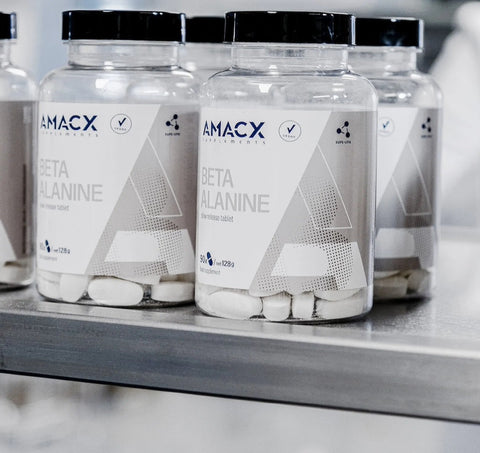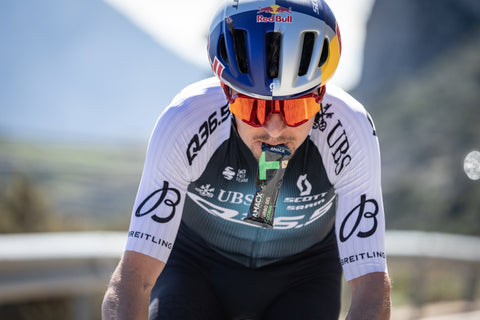Are you planning to run a marathon soon? Perhaps for the first time, with the goal of completing the magical distance of over 42 km? Or are you looking for the last few extra percent to improve your personal record? It goes without saying that good preparation is half the battle. The right footwear and sufficient training will undoubtedly have been considered, but do you also have a well-thought-out competition nutrition plan ready? In this blog we will discuss one of the most important components of this: hydration.
While the previous marathon blogs mainly focused on eating carbohydrates, there is a second nutrient that is essential for top performance around the marathon: water! Water is involved in hundreds of processes in our body, but one of the most important of these during exercise is regulating body temperature. Due to heat production by the muscles, this rises during the marathon. External factors, such as our clothing and in particular the weather conditions, can also play a role in this.
By starting the marathon well hydrated and drinking enough along the way, you can prevent significant loss of performance. To ensure that you are well hydrated at the start, it is best to keep an eye on the colour of your urine the day before the marathon and the morning of the event. If it is dark in colour, you are probably still a little dehydrated. In that case, definitely drink a little more, until the colour of your urine becomes light yellow.
How much you need to drink during the marathon depends largely on your individual sweat production and the weather conditions. You can prevent this loss of performance by losing a maximum of 2 to 3 percent of your body weight in sweat at the finish. Someone weighing 70 kg will therefore be able to lose a maximum of around 1.4 to 2.1 L during their marathon, before serious loss of performance occurs.
If this person were to run their marathon in 3.5 hours, and had a sweat loss of 1 liter per hour (= 3.5 liters), they would have to drink at least 1.4 liters of fluid during the marathon to stay within this margin of 3% of body weight. This would amount to about 400ml per hour. However, sweat losses vary considerably from person to person. Therefore, try to measure your sweat loss in different weather conditions in the following way:
- Weigh yourself shortly before the start of the training, without clothes and preferably after you have been to the toilet.
- Do your training as usual. During the training, note exactly how much you eat and drink. Also note the temperature.
- Immediately after the training, dry the sweat from your body, go to the toilet again and weigh yourself again.
With the results of these measurements you can make a good estimate before the marathon how much sweat you will lose, and therefore how much you need to drink. With this information you can plan exactly how much water/sports drink you will take with you at the various supply stations.
In summary:
- Drinking enough before and during the marathon is just as important as consuming the right amount of carbohydrates. Dehydration causes, among other things, that the body temperature can be regulated less well, which leads to loss of performance.
- Therefore, check the color of the urine from the day before the marathon. It should be light yellow in color. If that is not the case, then you know that you need to drink extra.
- In addition, measure your sweat loss several times during the preparation in different weather conditions. Based on these results, you can fine-tune your drinking plan for the marathon and thus prevent significant loss of performance!












